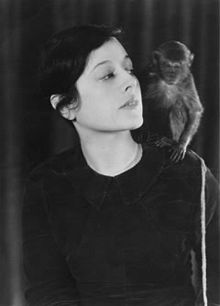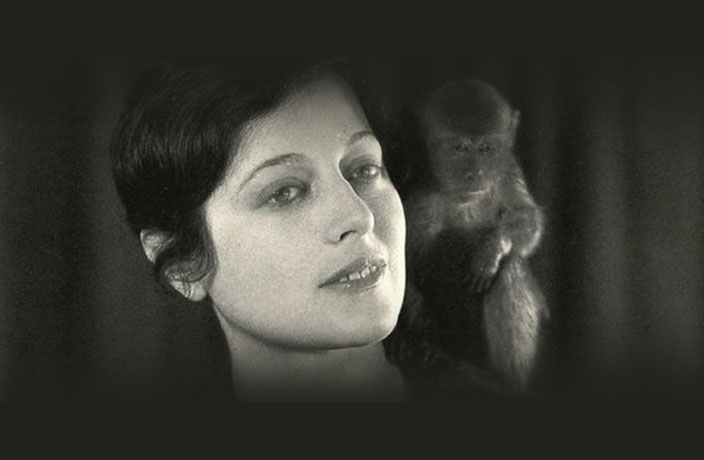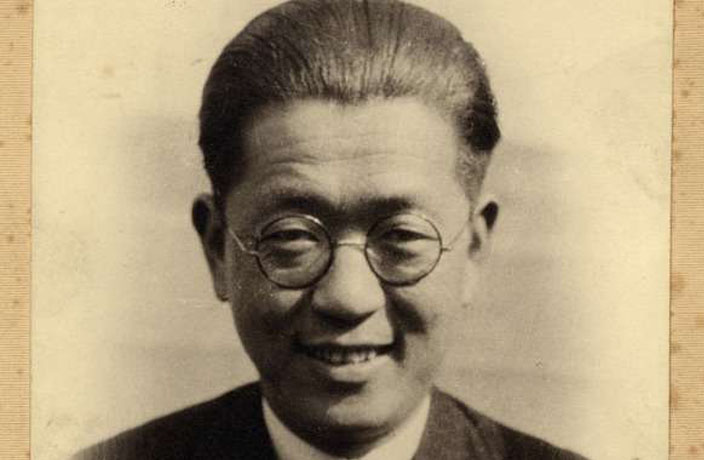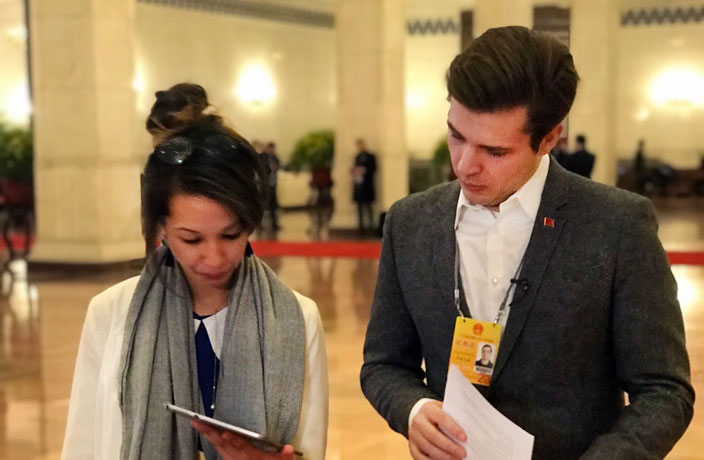Emily Hahn was brilliant, beautiful and shameless. Arriving in city in 1935, she rapidly scandalized Shanghai society by taking a Chinese lover, developing an addiction to opium and owning a pet gibbon named Mr. Mills. If her behavior was eccentric, it was not without precedent; her convoluted route to Shanghai had taken in a 3,900 kilometer car journey across the United States disguised as a man, two years living with a pygmy tribe in the Belgian Congo, and a crossing of Central Africa, alone and on foot.
Hahn arrived in Shanghai on a cruise ship with her sister. She never intended on staying, but found herself seduced by the city. She threw herself into it wholeheartedly – taking in the races, inspecting Chinese factories, dining with diplomats, entertaining millionaires and opera stars, visiting White Russian artists, attending garden parties, learning Mandarin, teaching English to a Japanese spy and having a new dress made every day.
“It was all agreeable if you liked people,” Hahn said, “And I did. There were different flavors to sample.”
Hahn was also a regular at Bernadine Soltz-Fritz’s parties, where people would come to meet ‘interesting Chinese.’ Among the guests would be members of the Chinese literati, opera stars and musicians.
It was at one such party that she met Shao Xunmei, a Chinese intellectual and poet from a rich family who was famed, as author Lu Xun remarked, for his extraordinary beauty. When the dinner finished, Hahn and Shao scandalized Shanghai society by getting up from the table and leaving together. He took her back to his large, old-fashioned house, she accepted his offer of an opium pipe, and so began one of the most famous affairs in the city.

Shao Xunmei and Emily Hahn
Shao lived with his wife and five children, as well as numerous servants and hangers-on, and he invited Hahn right into the heart of this domestic chaos. The couple even went through a form of marriage ceremony; he promising her a place in the family graveyard, while his wife presented Hahn with two jade bracelets, the color of mutton fat – the customary present for a new concubine.
The affair offered Hahn a privileged insight into a Shanghai closed to most foreigners. Shanghai, but “through a glow of strange-colored footlights,” as she described it. Hahn’s apartment, situated in the red light district, was conveniently central for Shao and his friends too, and any number of them could be found reclining in her green and silver painted chairs at any time of the day or night.
Hahn had been working for the North China Daily News in Shanghai, as well as writing about life out East for the New Yorker. Now with Shao, who published his and his friends’ work on his private printing press, she started up the opinion magazine Candid Comment, while he published its Chinese language companion Free Speech. Shao also gave Hahn an entrée to the famous Soong sisters, which enabled her to write her official 1941 biography of the family.

Hahn's 1941 book on the Soong Sisters
Once Shao had introduced Hahn to opium, she hit that with the same enthusiasm she did everything else in her life, “I was young and I thought it was romantic to smoke opium,” she once reminisced. “I was quite determined. It took me a year or so to become addicted, but I kept at it.”
Addicted she became, writing later: “Though I had always wanted to be an opium addict, I can’t claim that as the reason I went to China.” She was eventually cured by a hypnotist.
Shao, who stayed in China after the revolution, was not so fortunate. The authorities forced him to take cure after cure for his opium addiction, and he died in jail in 1968. The news didn’t reach Hahn for years. “It didn’t matter,” she said, “I knew the day he died.”
Shao was not the only man in her life in Shanghai though; Hahn was also close with property tycoon Sir Victor Sassoon, who considered her a kindred spirit, photographed her naked, and bought her a shiny new blue Chevrolet coupe (you can read about Sir Victor Sassoon's life in Shanghai right here). The aesthete Sir Harold Acton described Hahn as “a voluptuous figure from a Moroccan mellah.” Looking back, he sighed, “We were all much too physical.”

A portrait of Emily Hahn taken in Shanghai by Sir Victor Sassoon
And then there was the monkey. Mr. Mills was a gibbon Hahn bought from a Shanghai pet store in a state of “hysterical happiness,” and dressed in suits knitted by her amah. After complaints about his lack of house training, she also dressed him in diapers, but was still enraged by a dinner party invitation that ended with: “Regret we cannot extend the invitation to Mr. Mills.”
She took Mr. Mills everywhere and admitted to enjoying a very ‘unhealthy’ relationship with him. The gibbon refused to let any man touch her in his presence. “The only way to get Mr. Mills down from a tree,” she once observed, “was to throw my arms around a man.”
That jealousy came in very useful on occasion, like the time she was invited to dinner by a sinister Japanese agent named ‘Tiger One Eye.’ The Japanese wished to control all foreign and Chinese publications in the International Settlement... but it wasn’t only the magazine that Hahn had started with Shao that Tiger One Eye intended to get his hands on. Hahn arrived at the restaurant with Mr. Mills draped protectively round her neck. After one bite, Tiger One Eye retreated.

Hahn and Mr. Mills
In 1939 Hahn left a war weary Shanghai, but immortalized it in her 1944 memoir, China to Me. “Nothing remains impossible here,” she wrote. “Of all the cities of the world it is the town for me. Let the aesthetes sigh for Peking and their dream world… it is a reward for the afterlife. Shanghai is for now, for the living me.”
Hahn remained modest about her attempts to capture Old Shanghai though, “Only Thackeray could have done it justice – on paper, I mean. We all did it ample justice in practice.”
Either way, she would have been remembered had she not written a word, as Harriet Sergeant discovered on researching her book Shanghai, “Nearly everyone I interviewed had an anecdote about Emily Hahn. Men recalled her wistfully; women with vitriol.”
Hahn moved down to Hong Kong, where she caused more scandal with an affair with the married local head of British army intelligence, Major Charles Boxer, who went on to father Hahn’s two daughters. A brief stint in Britain followed the war, before a return to New York, where she continued to go into the New Yorker office daily, right up until her death in 1997 at the age of 92.
Her granddaughter Alfia Vecchio Wallace remembered Hahn at her funeral: “Chances are, your grandmother didn’t smoke cigars and let you hold wild role-playing parties in her apartment. Chances are that she didn’t teach you Swahili obscenities. Chances are that when she took you to the zoo, she didn’t start whooping passionately at the top of her lungs as you passed the gibbon cage. Sadly for you... your grandmother was not Emily Hahn.”






















0 User Comments